Do you struggle with overwatering or underwatering? You might not be following the correct watering schedule. Here’s what gardeners need to know about the best time to water plants during the summer!
RELATED: Summer Gardening Tips For Your Survival Garden
In this article:
- Best Watering Schedule to Follow Based on the Plants You Grow?
- Should You Water the Plants in the Morning or Evening?
- Is It Possible to Rehydrate Wilted Plants?
Facts You Should Know on the Best Time to Water Plants During Summer
Best Watering Schedule to Follow Based on the Plants You Grow?
How often should you water plants? The answer really depends on what type plants you are growing in your garden. Keep reading for a more detailed guide:
1. Trees/Shrubs
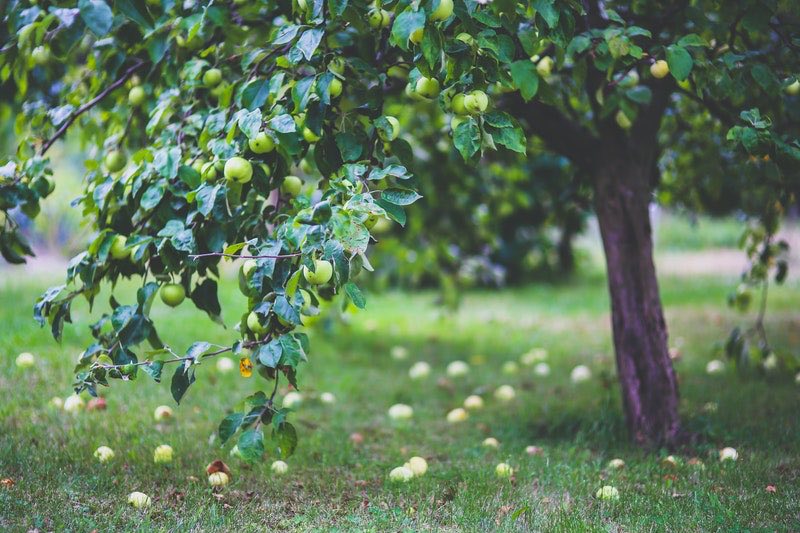
Tree seedlings don’t need much water to grow, but mature trees, on the other hand, are always thirsty for them.
The watering schedule doesn’t matter too much here. What’s important is to keep the soil moist and damp at all times to ensure proper tree growth.
To do so, drive your garden hose into the soil, turn it on, then leave it running until at least eight inches of the soil surrounding the tree is moist and sponge-like.
During heatwaves, small trees will need to be watered two to three times a week. Meanwhile, mature trees will need watering almost every other day,
Important: Note that rainfall doesn’t always provide trees all the water they need to grow. As a general rule, continue to water your mature trees even during the rainy or cold seasons of the year.
2. Vegetable Garden Plants
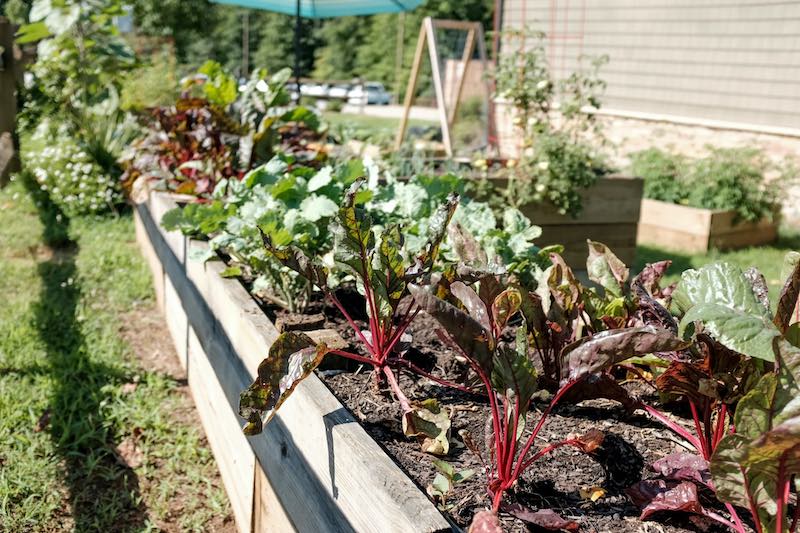
All vegetable plants need water to grow, but some shallow-root options have a more urgent demand for it — especially during heatwaves. Vegetables that need a lot of water to grow include lettuce, sweet corn, squash, radish, pepper, cucumber, celery, and cauliflower.
Most of these veggies thrive with a morning watering schedule. Just set the sprinklers to turn on automatically every morning if you want to make things easier.
However, if you want to track your plant’s growth, we recommend manually watering your vegetable garden. Stick your finger in the soil, check the consistency, and assess whether it’s time to water or not.
Generally, the soil should have a moist consistency that’s damp enough to feel like a sponge but not wet enough to make the garden soil feel like clay.
Pro Tip: If possible, place your vegetable in a raised garden bed because they have great irrigation and ventilation systems.
3. Small Container Plants
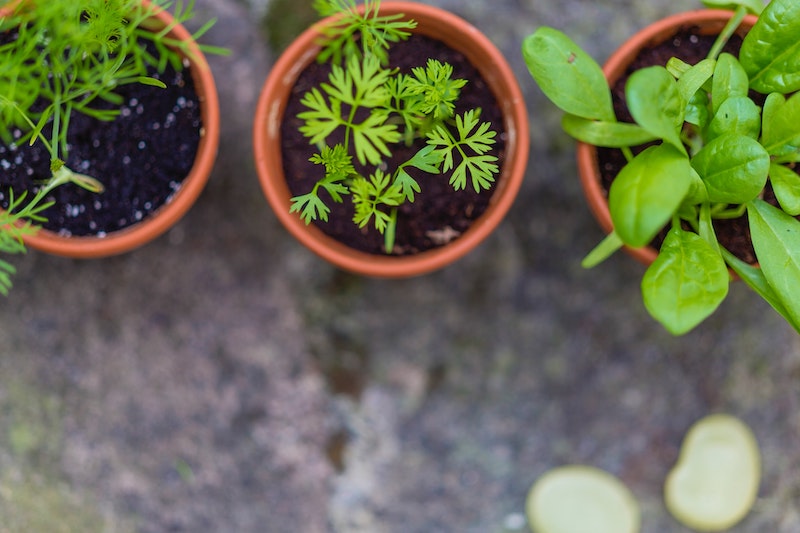
Watering container plants is trickier than most people make it out to be. The fact that they’re staying indoors means the plants are actually more sensitive than their larger counterparts.
For best results, it’s best to water your container plants twice every day. Once in the morning for a heavy watering session and another in the evening to prepare your container plants for the long night ahead.
But be careful not to drown your plants in water. Only water the plants up to the point where the soil feels damp, moist, and sponge-like.
RELATED: How Often To Water Seedlings | 7 Important Tips
4. Annual Plants
Annual plants are those that germinate, produce seeds, and die within one growing season, These include options such as pelargoniums, impatiens, marigolds, watermelons, maize, and peas, among others.
Generally, annual plants have shallow roots and need daily watering. The idea is to keep the top layer of the soil moist and damp at all times.
5. Perennial Plants
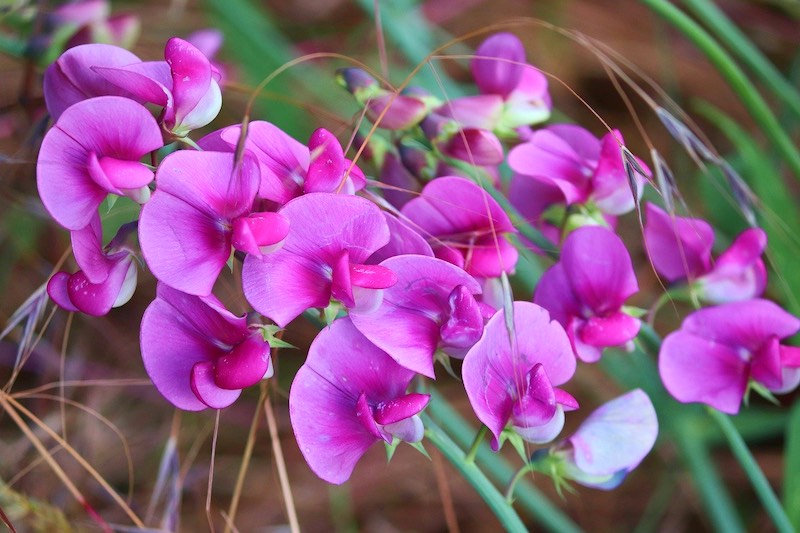
The perennial plant is a plant that has a lifespan lasting more than two years. This means they germinate, produce seeds, and mature at a much slower rate than annual plants do. Some perennial plant favorites include the false indigo, butterfly weed, basil, common safe, and garden phlox, among others.
Unlike annual plants, they have deep roots capable of sourcing all kinds of nutrients and minerals from the soil, so they are more resilient against drought. Aim to water perennial plants around once to twice weekly.
Should You Water the Plants in the Morning or Evening?
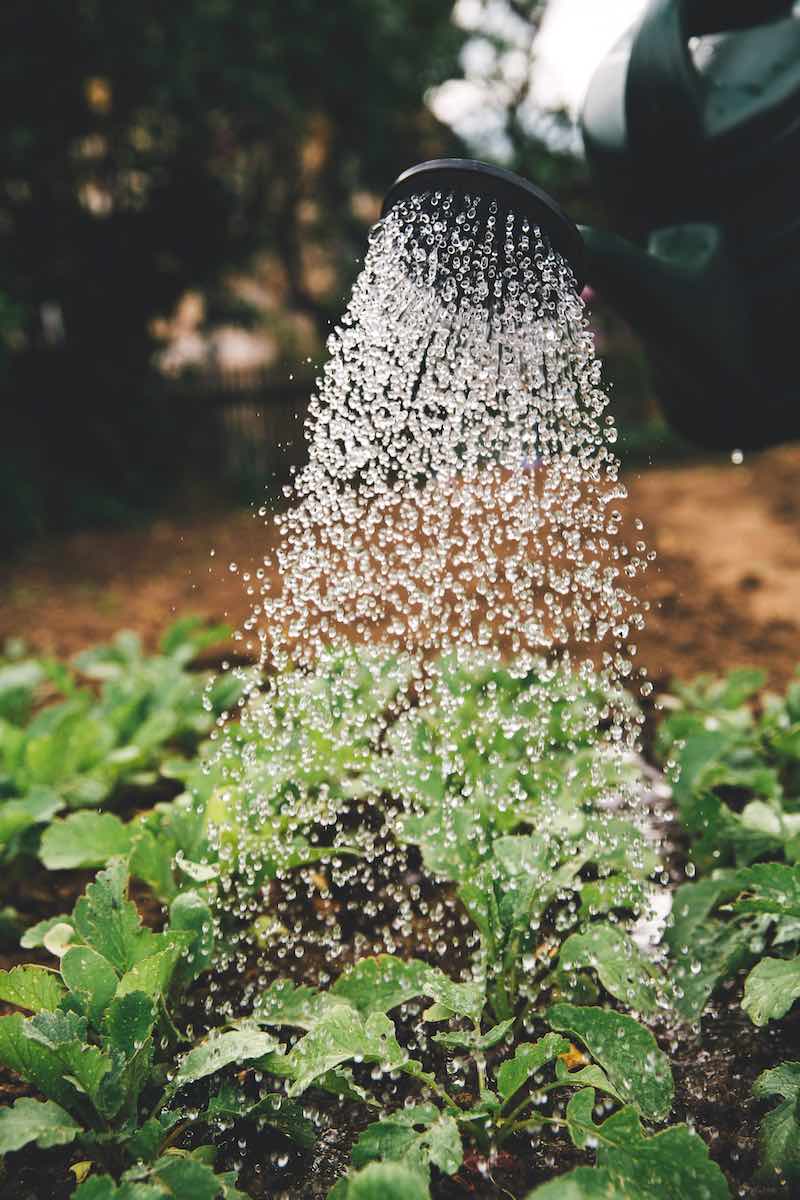
Most plants prefer morning watering over evening watering. You’ll need to prepare the soil for the upcoming heatwave. After all, the peak of the day’s temperature spike happens at noon, not at night.
However, we understand that gardening is not an activity everyone can allot time on. Most homeowners just squeeze their gardening duties somewhere in the middle or toward the end of the day when they are already free.
If this is the case, then you don’t have much of a choice but to follow an evening watering schedule. Overall, it all boils down to your lifestyle. Just make sure that the soil is damp and moist enough to withstand the summer heat.
Is It Possible to Rehydrate Wilted Plants?
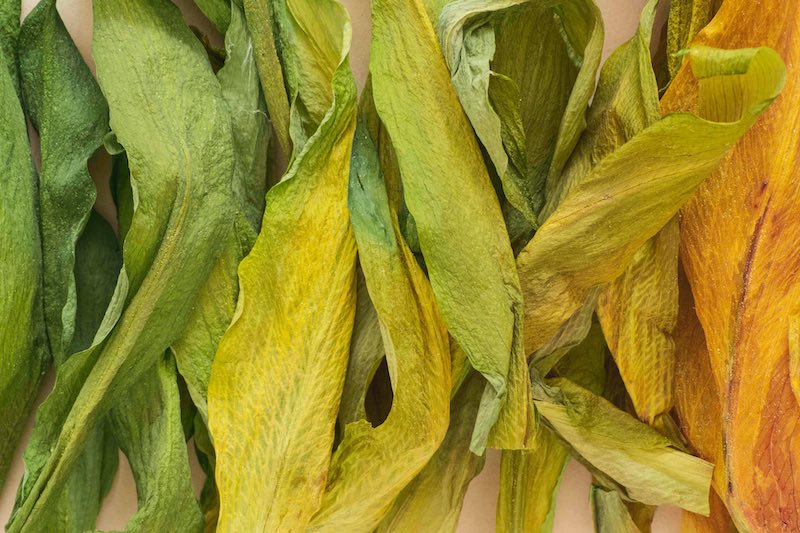
Is it possible to revive a wilted plant? Generally, yes! A quick emergency rehydration treatment will bring back the once green, luscious color of your beloved garden plants.
Container Garden
- Firstly, move the container plant out of direct sunlight and wind. It’s best to do the treatment in a cool, shaded area like your deck or porch.
- Secondly, poke a few holes in the soil. Doing so will allow the water to flow freely into the deeper parts of the potted plant.
- Finally, water the plants, leave the soil to absorb the water, test the soil, then repeat as needed. You’ll know you’re done if the soil no longer feels warm and crumbly.
Outdoor Garden
For your outdoor garden, punch a few holes in the soil and then drive the garden hose deep into it. Leave open for a few minutes until the top layer of the soil feels moist.
Check if the soil has absorbed the water. If not, then repeat the process as much as you need to.
Apart from not knowing what the best time to water plants is, what are the common mistakes gardeners commit when it comes to watering? Epic Gardening answers the question:
Generally, the best time to water plants during the summertime varies on a case-by-case basis. Do not blindly follow one universal routine. Otherwise, you’ll be putting your garden at risk of both dehydration and overwatering.
If you’re still having trouble creating your schedule for watering plants, do more research on the water needs of the plants you have in your home. Compile the data you find and use them to create your customized watering routine.
What do you think the best time to water plants is on a hot summer day? Share your thoughts with us in the comments section below!
Fellow homesteaders, do you want to help others learn from your journey by becoming one of our original contributors? Write for us!
UP NEXT:

Leave a Reply